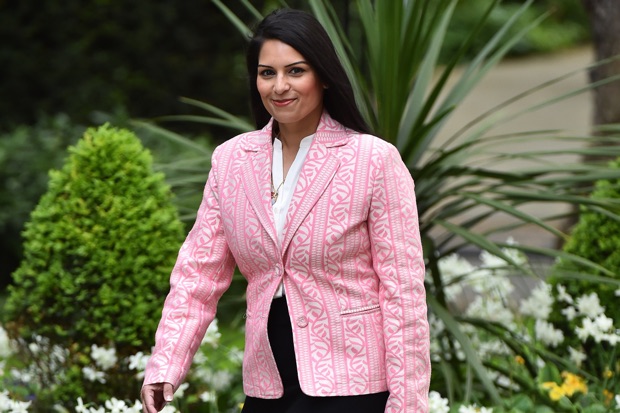One of the striking things about the European Union referendum debate so far – apart from how cross everyone is with each other – is how blokey the whole thing has been. There are high-profile women on either side of the debate – Theresa May (who has been rather quiet since her announcement that she was backing ‘In’), Nicky Morgan, Nicola Sturgeon and Caroline Lucas for ‘In’, and Priti Patel, Andrea Leadsom and Theresa Villiers for ‘Out’ – but most of the big interviews and rows about who is backing which side have featured men.
Yet women are the key swing voters in this referendum. They are twice as likely (20-25 per cent) to say they ‘don’t know’ how they will vote in the referendum as men (10-15 per cent), and both sides think that female voters might lean more their way.
Today both sides are trying to appeal to these swing voters, running big EU-themed events for International Women’s Day. At the Women for Britain launch, Priti Patel is trying to capture the spirit of the suffragettes, arguing that ‘the potential and ambition of women is being held back’, while Nicky Morgan and other pro-Remain campaigners are holding a similar event later today.
The question is whether these sorts of events, targeted at what is a massive and disparate group of voters, really work. Women for Britain will campaign on the tampon tax and sexist EU insurance regulations, which sounds rather as though the campaign group thinks that women only base their decisions on what their next trip to Boots will be like. And there is also a risk that a separate campaign squirrels off women voters as a niche issue, rather than a key part of the campaign. Why not adapt the overall campaign messaging to address the fact that women voters tend to present to pollsters as slightly more risk averse, if they are such an important group?







Comments